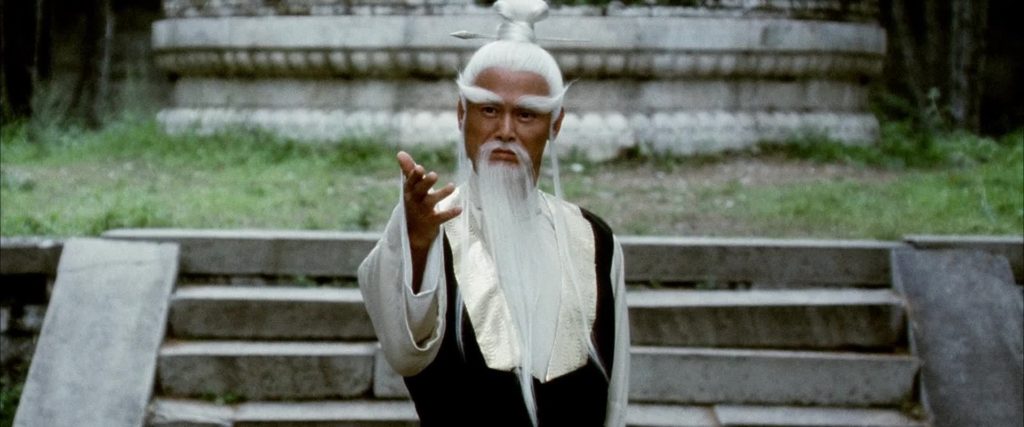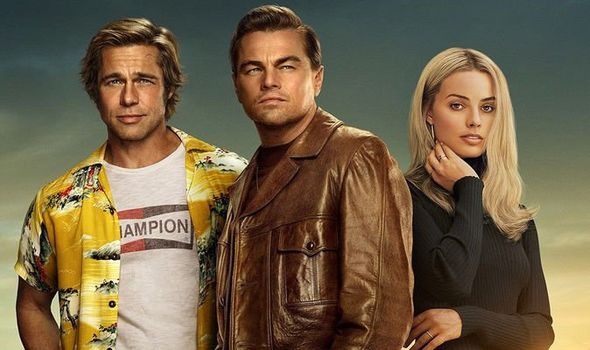The Inexcusable Racism in Tarantino’s Once Upon a Time in Hollywood
Of course, racism and Tarantino go together like milk and cookies, so it’s no surprise that his latest film, Once Upon a Time in Hollywood, includes some casual racism. Usually the controversy surrounds Tarantino using the N-word like Michael Bay uses explosions, which, fair or not, Tarantino and his fans will typically defend as being appropriate for the given characters. While some people, including Spike Lee, aren’t willing to give Tarantino a pass on using that word or sensationalizing American slavery to sell movie tickets, he’s largely been able to shrug off the controversies. And perhaps that is to say there’s some validity in at least the racism in his films dealing with black culture. Tarantino has always seemed to have an affinity for and appreciation of black culture, even making Jackie Brown early in his career, an homage to blaxploitation films of the 70s.
And there’s no question Tarantino has likewise had a fascination with Asian culture. No film made this more apparent than Kill Bill, which relied heavily on influences from martial arts movies and even cast David Carradine of Kung Fu fame as the titular Bill.

Let’s not forget Master Pai Mei.
Again, people will give the same excuses. The exploitation of Asian culture and the propagation of Hollywood stereotypes is all just Tarantino being true to the genre. OKAY. But that brings us finally to Once Upon a Time in Hollywood…
The racist scene in question involves Bruce Lee, a real world Hollywood icon known for his martial arts skill. For a lot of people it will go unnoticed, as is the case for most racism against Asians in Hollywood. (#OscarsSoWhite comes to mind.)
The scene features Brad Pitt’s character Cliff Booth hanging out on the set of the Green Hornet hoping to be called up to perform some stunt work if needed. Bruce Lee stars in the show as Kato, and backstage this fictional Lee is talking big about taking on heavyweight champion Muhammad Ali. Booth (Pitt) calls Lee out on his grandstanding and the two challenge each other to a round of fights. Lee knocks Booth on the ground with a flying kick. The second time, Booth grabs him in midair and hurls Lee into the side of a car, leaving a large dent. The third fight is broken up before a winner can be declared, resulting in Booth getting kicked off the set.
Now, in the context of the film, the purpose of the scene is to showcase Booth’s fighting chops, and this at least makes some sense for the story. They wanted to show Brad Pitt’s character is capable, and what better way than holding his own against Bruce Lee?
The problem comes in the specific execution and the complete disregard for Hollywood’s history of portraying Asian masculinity in films for 100 years, something Tarantino would no doubt have been familiar with given his doctorate-level understanding of cinematic history.
First off, Tarantino portrayed Lee in a highly negative light with this scene. The fictional Lee was played off as a cocky, arrogant blowhard. Even Lee’s own daughter was offended by the portrayal. People might defend Tarantino here by saying this Lee was an exaggerated, fictionalized version and shouldn’t be taken seriously. But that’s not a valid excuse when you consider this movie also included several more real life people including Sharon Tate, Steve McQueen, Roman Polanski and Charles Manson. Every one of them was treated with respect. Yes, Roman Polanski and Charles Manson were treated with respect, but Bruce Lee wasn’t.
So, Bruce Lee, Hollywood’s biggest Asian icon, is used as a prop to make Brad Pitt look like a badass.
If that was the only issue, it could be shrugged off as a simple “oopsie”, just an accidental personal slight, but there’s the larger context of Hollywood and Asian men, and what Bruce Lee means as a symbol, which Tarantino must be aware of and still chose to include the scene in the way he did. Obviously with any minority, under-representation in Hollywood is a problem. So when you have a minority group with an honest to goodness superstar like Bruce Lee, that’s a big deal. Bruce Lee is one of maybe three Hollywood superstars who are Asian, and certainly the first and most historically important. And that’s who Tarantino chose to be the “heavy”, a term described in this film as a character who antagonizes the hero in order to make the hero look good, and something that the film also implies goes to “washed up” has-beens. So, Bruce Lee, Hollywood’s biggest Asian icon, is used as a prop to make Brad Pitt look like a badass.

If you’ve ever seen a martial arts scene, you’ve probably noticed that people often make “karate sounds” when fighting. Those sounds are referred to as kiai and have many purposes. They can intimidate the opponent and help direct breathing, but there is also a spiritual component to them as an expression of one’s spiritual energy. As in real life, the fictional Bruce Lee makes these kiai sounds as he prepares to take on Brad Pitt’s character. He lets out a very strong and serious “hi-yah!” Booth responds with a little “hi-yah” of his own, playing it for laughs, mocking Lee’s performance. When the fight is broken up and someone asks why there is a dent in the car, Booth tells her that he threw “this little man” into it. While Bruce Lee was on the shorter side, this insensitively ignores the stereotype of Asian men being small in stature, and let’s be honest here: Bruce Lee was a whole inch taller than Tom Cruise.
It’s not simply that Tarantino chose to have Bruce Lee mocked, but that he chose to have him mocked for being Asian.
Not only are these two moments part of the “let’s make fun of Bruce Lee” scene, but they’re specific Asian insults used to mock him. It’s not simply that Tarantino chose to have Bruce Lee mocked, but that he chose to have him mocked for being Asian.
While the scene served a narrative purpose, it’s a purpose that still could have been achieved without the unfortunate racism. There was no need to make a joke out of Bruce Lee. Just taking on a realistic version of Lee would have gotten the same point across. No need to turn him into a parody and no need to mock Asian stereotypes in the process.
This could have easily been a way for Tarantino to comment on the racism of Hollywood’s Golden Age, but the scene didn’t lampshade their mockery of Bruce Lee or play it as satire. Instead, Tarantino participated in that timeless tradition of Hollywood denying Asian men their masculinity.
He did this by taking the biggest icon of Asian masculinity and ridiculing him so the audience would like the white guy. He wrote into the script a joke about traditional Asian martial arts sounds and a passing line about this Asian icon being a “little man”. Unlike Tarantino’s previous flirtations with racism in his film, there’s no excuse.
But the good news is, no N-words, probably because the only minority character in this entire movie is Bruce Lee, and in that sense, at least, Once Upon a Time in Hollywood perfectly encapsulates the Golden Age of Hollywood.

Terrific insight about this entire scene. As an Asian-American, this scene made me feel real discomfort in the theater, which was something I’ve never experienced before.
Hollywood has been notoriously insulting to Asian people, particularly men. Asian women have managed to edge up slightly from the prostitute roles given them in the early days (Suzy Wong) and now play feisty sidekicks to their Anglo masters. But men are something else. From the lowly laundrymen and cooks they have briefly morphed to kungfu masters thanks to Bruce Lee but now are back to playing insulting roles of evil men and crackpots.
Tarrantino has displayed a total lack of cultural sensitivity which does not surprise me given Hollywood’s crass treatment of Asian people. He owes Shannon Lee and the Asian community a big apology. I, for one will never see another Tarrantino film. Disgusting.